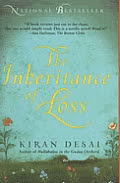
An Italian Affair by Laura Fraser
When we are young, our mothers teach us that when we are sad or depressed about something, we should, "Don't think about it; think about something else." And now we read that psychologists have a name for "thinking about something else" to cure depression; it is called "brainswitching". As lovers have known from the beginning of time, when you get dumped by your spouse or your love, the best treatment for your depression is to have an affair with someone else, preferably someone foreign or exotic.
When Laura Fraser's husband left her, she went to Italy, where she began an affair with a married Frenchman. This book chronicles that affair and the healing effects it had on her.
Whether consciously or subconsciously, Laura chose to have an affair that had no hope of leading to a more serious relationship. She knew from the beginning that her affair was just that, an affair, and she had the good sense never to let it progress beyond that. She protected herself from further emotional hurt by not letting herself fall in love with someone who was unavailable to her. As she explained about her affair, "You don't have to deal with all the little disappointments that relationships inevitably bring, and you never take each other for granted. Your expectations are never dashed because there is no possibility that the relationship can ever be more than it is, a sometime affair thousands of miles away."
One of the things Laura learned about foreign men during her affair was that they enjoy letting a relationship unfold over time, rather than expecting too much in the beginning. As her lover explained, "European men like to discover what's beautiful about a woman. Every woman is a mystery, and you have to find what makes her most beautiful and gives her the most pleasure." That is a perfect description of the way I think about women and about people in general. Almost everyone is interesting; it is up to me to find out what is interesting about them. And every woman can be filled with joy if only I can find what gives her joy. (I am acutely aware that if a woman has a psychological problem, I cannot heal that problem. To have joy with a woman, I must find someone who does not attempt to inflict her psychological problems on me.)
Part of the healing effects of an affair is that it is a fantasy. It is not real and cannot become real. Yet when her lover visited her in San Francisco, her fantasy world met her reality, with inevitable problems. Some of her "real world" friends disapproved of her relationship, telling her that it was "unhealthy" or "inappropriate". But she knew the healing effects of the relationship and the joy that it brought her.
And when the affair had completed its healing and she no longer needed it, it ended quietly and peacefully. In the end, her quote from Giovanni Boccaccio (The Decameron) summed up her feelings:
"And it pleased Him that this love of mine, whose warmth exceeded all others, and which had stood firm and unyielding against all the pressures of good intention, helpful advice, and the risk of danger and open scandal, should in the course of time diminish of its own accord. So that now, all that is left of it in my mind is the delectable feeling which Love habitually reserves for those who refrain from venturing too far upon its deepest waters. And thus what was once a source of pain has now become, having shed its discomfort, an abiding sensation of pleasure."
The depression was gone, having been "brainswitched" away, and she could feel happy again.











